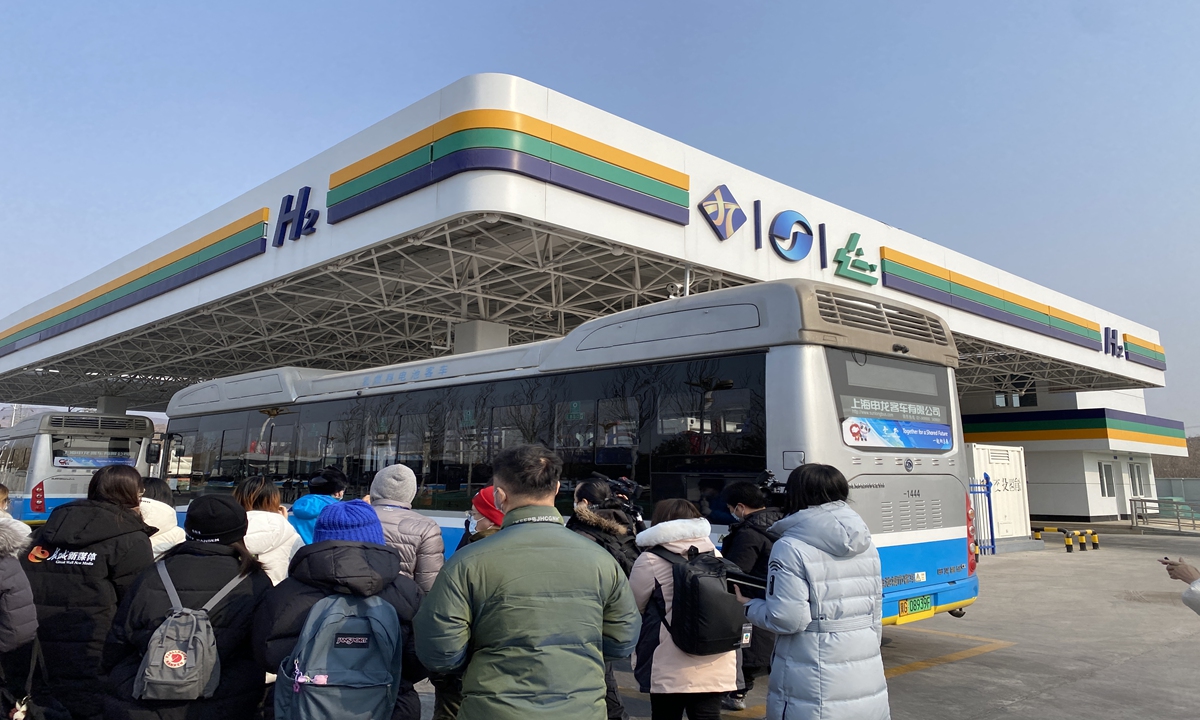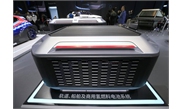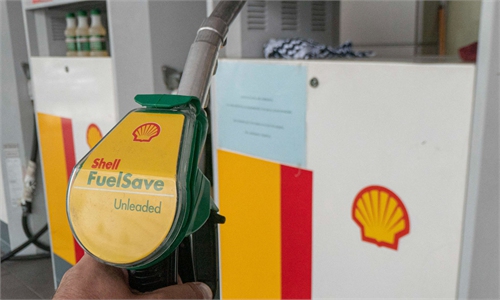SCI-TECH / ENERGY
Beijing 2022 sees largest use of hydrogen-powered vehicles in Olympic history

A hydrogen-powered bus is refueled at a station in Zhangjiakou. Photo: Zhang Hui/GT
More than 1,200 hydrogen-powered vehicles are being used in the three competition zones of the Beijing 2022 Winter Olympics, marking the largest demonstration of such vehicles in the history of the Olympics, according to a hydrogen energy institute in Zhangjiakou.
Zhangjiakou is providing most of the hydrogen used at the Games, and in the past five days it has refueled 710 vehicles with 22 tons of hydrogen for the Zhangjiakou competition zone. And as well as those used in the closed-loop competition zone, the city has another 127 hydrogen-fueled buses, said Wang Hewu, executive director of the Zhangjiakou Hydrogen and Renewable Energy Research Institute.
The city's two hydrogen production plants and eight hydrogen refueling stations have provided a total of 27 tons of hydrogen for 837 vehicles in the city in the past five days, which has reduced carbon dioxide emissions by about 400 tons, Wang said, noting that such vehicles only emit pure water, unlike diesel powered vehicles that emit polluting particles.
He told the Global Times that more than 1,200 hydrogen-powered vehicles are being used in the Beijing, Yanqing and Zhangjiakou competition zones of the Winter Olympics, which is the most extensive use of such vehicles in the history of Olympics. At previous Games, only a few dozen of such vehicles have been used, Wang said.
The institute has set up a data center to combine the data for hydrogen production, transportation and vehicle operation in order to ensure safety during production and operation, and scientists will also analyze the effects of carbon emission reduction based on the data, Wang said.
As well as the transportation requirements, the torch for the Beijing Winter Olympic is also primarily fueled by hydrogen.
Zhangjiakou is a national wind and solar energy storage and transmission demonstration project zone, and the city aims to become an international hydrogen city by 2035.
At Wednesday's media briefing, Li Sen, director of the Beijing Olympic organizing committee's general planning department, said that the concept of a green Games and sustainability has been imbedded in the entire process of the Games, adding that the event is using low-carbon venues, low-carbon transport and low-carbon offices.



